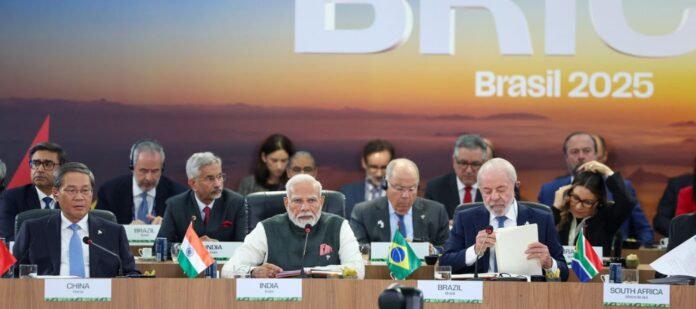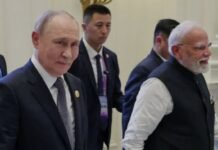At the ongoing 17th BRICS Summit, hosted in Rio de Janeiro, Brazil, Prime Minister Narendra Modi delivered a compelling address, strongly advocating for urgent and comprehensive reforms in global governance structures and unequivocally reiterating India’s unwavering commitment to assuming a leadership role in the transformative domain of Artificial Intelligence (AI). His impassioned plea for a re-evaluation of 20th-century global organizations, arguing that they lack the necessary capacity to effectively address the complex challenges of the 21st century, resonated deeply with the spirit of multilateralism that BRICS aims to foster. Modi underscored the critical need for strengthening multilateral institutions and enhancing the collective voice of the Global South, emphasizing that developing countries require greater support, particularly in terms of access to climate finance and cutting-edge technology, to achieve sustainable development goals.
In a poignant moment during the summit, Prime Minister Modi also delivered a powerful condemnation of the recent terrorist attack in Pahalgam, describing it not merely as an assault on India but as an “onslaught on the entire humanity.” His call for robust global action against terrorism, coupled with a demand for the harshest possible treatment for those who fund, promote, or provide safe havens to terrorists, found strong resonance among the BRICS leaders, who collectively condemned the attack in the strongest possible terms. This unified stance against terrorism underscored the bloc’s growing commitment to peace and security as a foundational element of global stability.
Beyond geopolitical and security concerns, Prime Minister Modi highlighted India’s vision for “Responsible AI,” asserting that AI should be leveraged as a tool to enhance human values and capabilities, guided by the mantra of ‘AI for All’. He emphasized India’s proactive utilization of AI across various sectors and stressed the importance of addressing concerns while simultaneously encouraging innovation in AI governance. Furthermore, the Prime Minister offered four key suggestions for the BRICS bloc: advocating for the BRICS New Development Bank to prioritize demand-driven principles and long-term sustainability in project financing, proposing the establishment of a Science and Research repository to benefit Global South countries, and calling for continued focus on collaborative economic and financial affairs. The adoption of the ‘Rio de Janeiro Declaration’ at the conclusion of the Leaders’ Session signifies a collective commitment to these shared objectives, positioning BRICS as a pivotal force in shaping a more inclusive, equitable, and multipolar world order.
This is a web-generated news story.




